User Research
Libraries are impacted by the ways in which individuals engage with technology; how they seek, access, contribute, and use information; and how and why they demonstrate these behaviors and do what they do. We're collaborating with librarians to shape their services around a set of expectations that have been influenced by consumer technologies and modern research and learning environments. By providing the library community with behavioral evidence about individuals’ perceptions, habits, and requirements, we can ensure that the design of future library services is all about the user. Our efforts are amplified by strategic partnerships and focus in these two areas:
Presentations
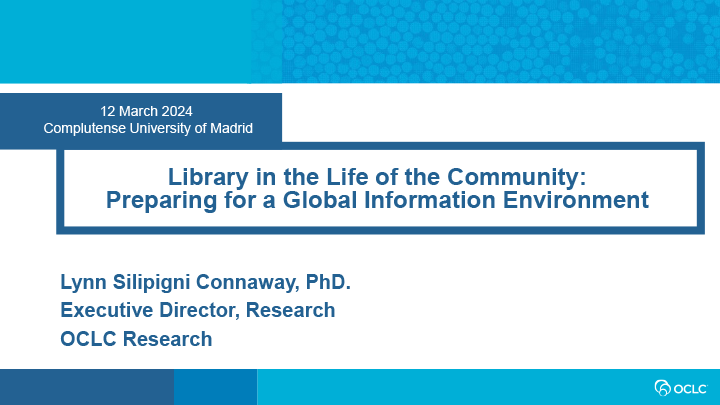
Library in the Life of the Community: Preparing for a Global Information Environment
Madrid, Spain
Lynn Silipigni Connaway, Ph.D., Executive Director, Research, OCLC, presented research that was conducted at OCLC addressing community-focused programming, spaces, and collections. She discussed the knowledge and skills required of information professionals in a global information environment.
Topics: User Research
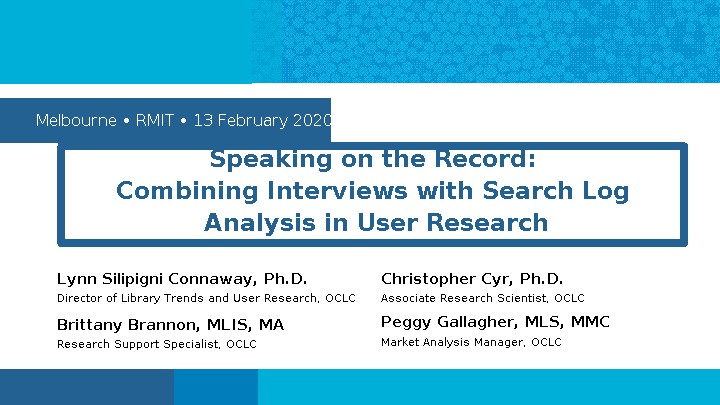
Speaking on the Record: Combining Interviews with Search Log Analysis in User Research
Melbourne, Australia
OCLC Research presents a novel user research methodology that combines log analysis with semi-structured interviews to determine how library users navigate the path from discovery to access. Indications are, “The methodology used for this study also could be extended beyond discovery systems. Other computerized activities that leave digital traces could be studied using interview protocols based on log analysis.”
Topics: User Research, Research Methods
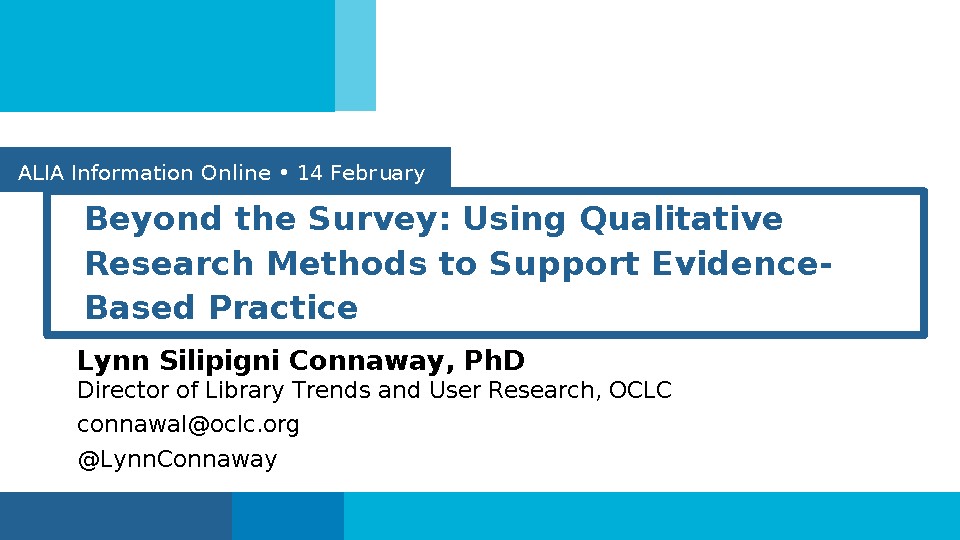
Beyond the Survey: Using Qualitative Research Methods to Support Evidence-based Practice
Sydney (Australia)
Lynn Silipigni Connaway reviews different forms of qualitative research and mixed research methods using examples from recent research projects.
Topics: Research Methods, User Research

New Ways of Seeing: Understanding Individuals on their Terms
Sydney (Australia)
This presentation provides a deep delve into information behavior research methods, qualitative research, and ethnographic data collection tools and methods.
Topics: Research Methods, User Research
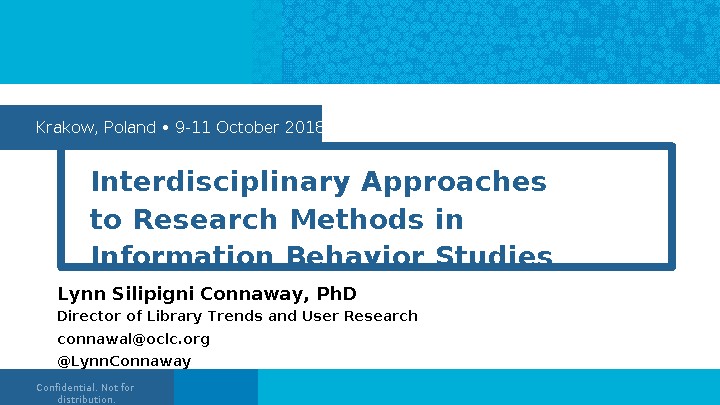
Interdisciplinary Approaches to Research Methods in Information Behavior Studies
Kraków (Poland)
This presentation details research methods, and data collection and data analysis tools and methods used in library and information schools over the years for information behavior studies, as well as challenges and opportunities.
Topics: User Research, Research Methods
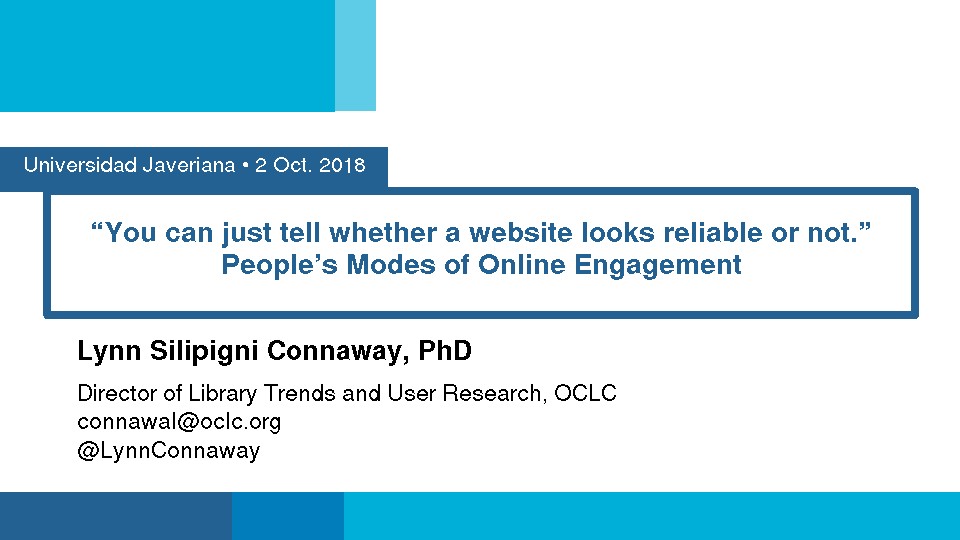
"You Can Just Tell Whether a Website Looks Reliable or Not." People's Modes of Online Engagement
Bogota (Colombia)
Learn about the Digital Visitors and Residents project, how research supporting the project was completed, results focused on digital literacy, and recommendations for libraries.
Topics: User Research, Information Literacy
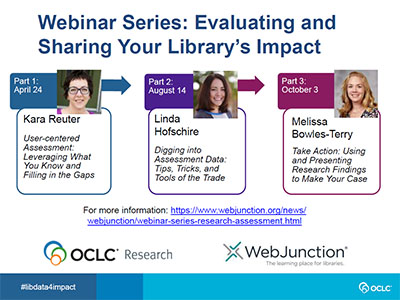
User-Centered Assessment: Leveraging What You Know and Filling in the Gaps (video)
Whether you’re trying to decide how to allocate your library’s resources or make the best use of your space, formal assessment tools can guide your decision-making. This webinar covers why formal assessments are more effective than anecdotal data, and will help you learn how to plan effective evaluations.
Topics: User Research, Assessment, WebJunction
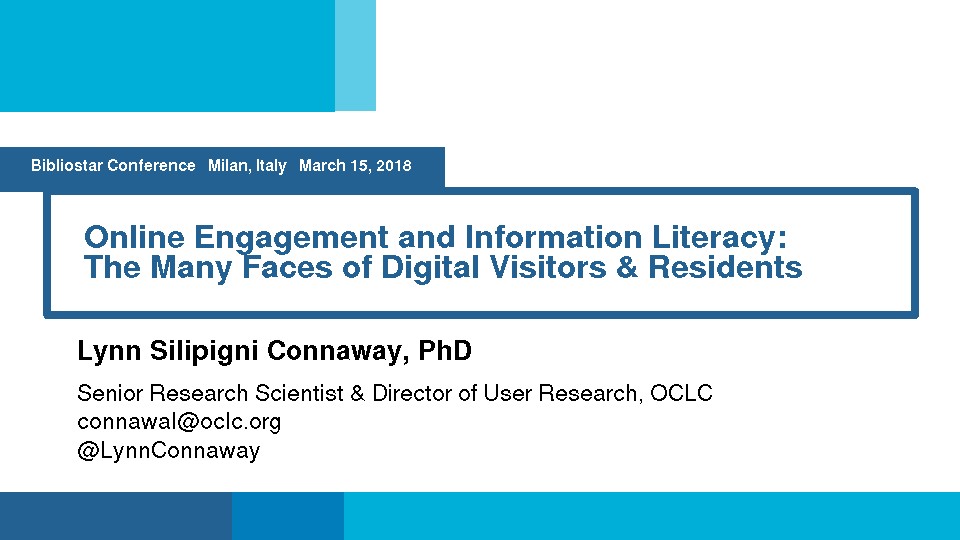
Online Engagement and Information Literacy: The Many Faces of Digital Visitors & Residents
Milan (Italy)
Learn more about OCLC's Digital Visitors and Residents work, identifying how individuals are engaging with technology, acquiring information, and why they make their choices.
Topics: Digital Visitors and Residents, User Research, Information Literacy
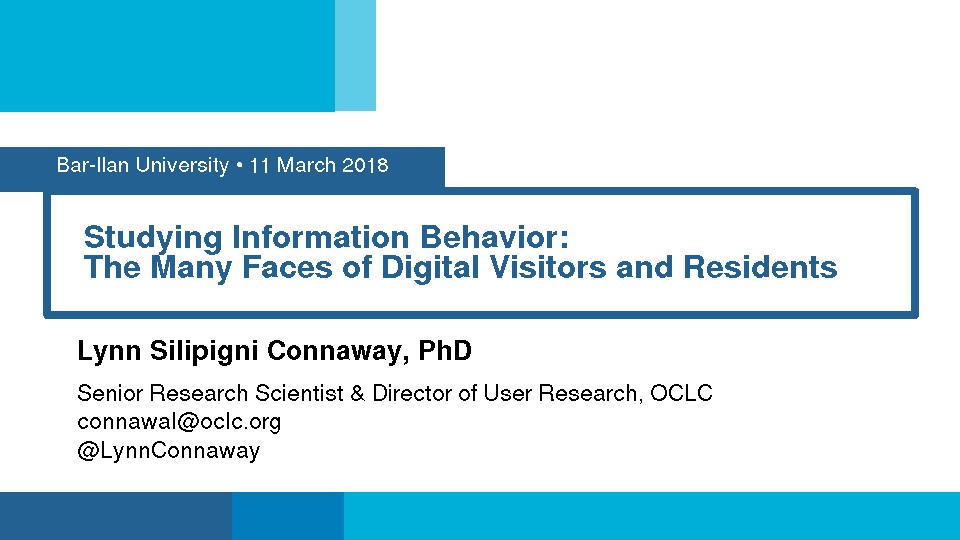
Studying Information Behavior: The Many Faces of Digital Visitors and Residents
Ramat Gan (Israel)
Learn about the Digital Visitors and Residents project, which reveals the information behavior of students and faculty as they access information in the library.
Topics: Digital Visitors and Residents, User Research
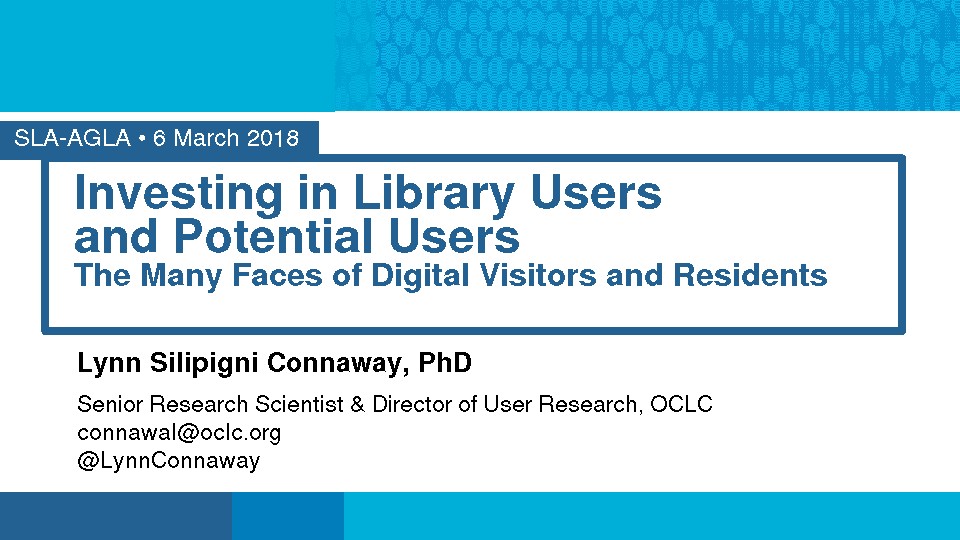
Investing in Library Users and Potential Users: The Many Faces of Digital Visitors and Residents
Muscat (Oman)
Silipigni Connaway shares results from OCLC's Digital Visitors and Residents work, which identified how individuals are engaging with technology, acquiring information, why they make their choices, and how libraries can use this information to make decisions to reach users.
Topics: Digital Visitors and Residents, User Research